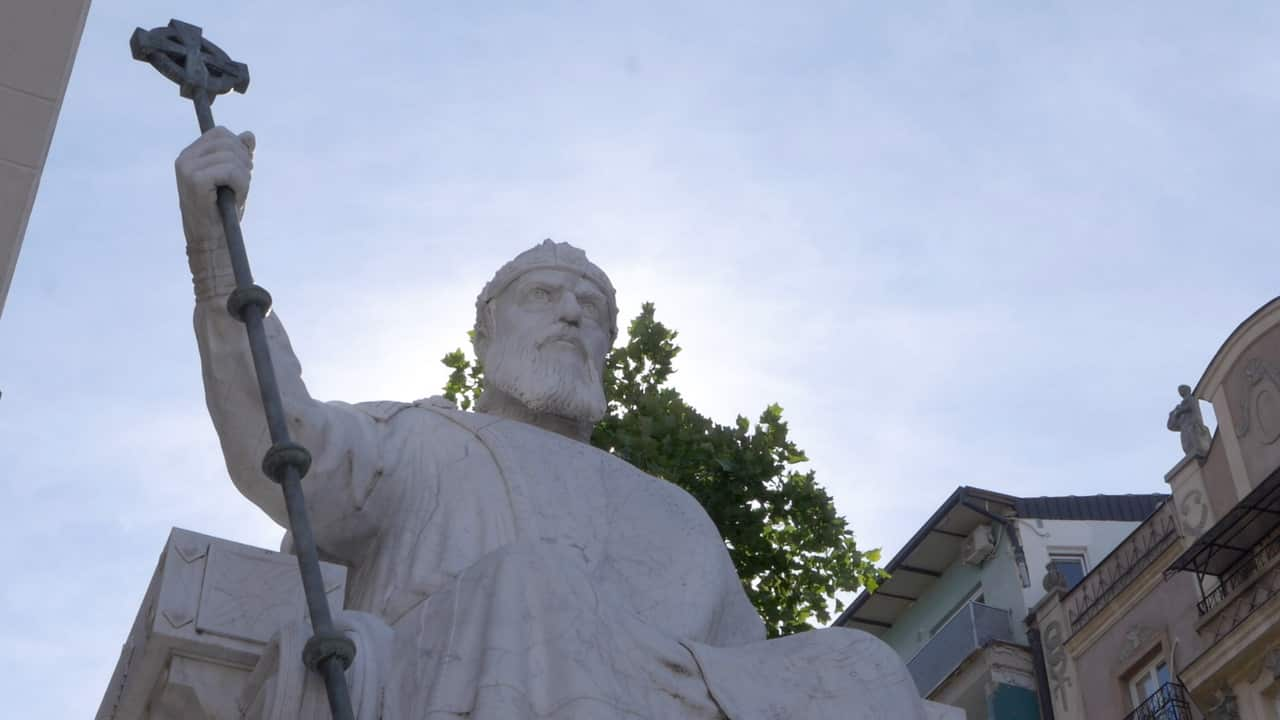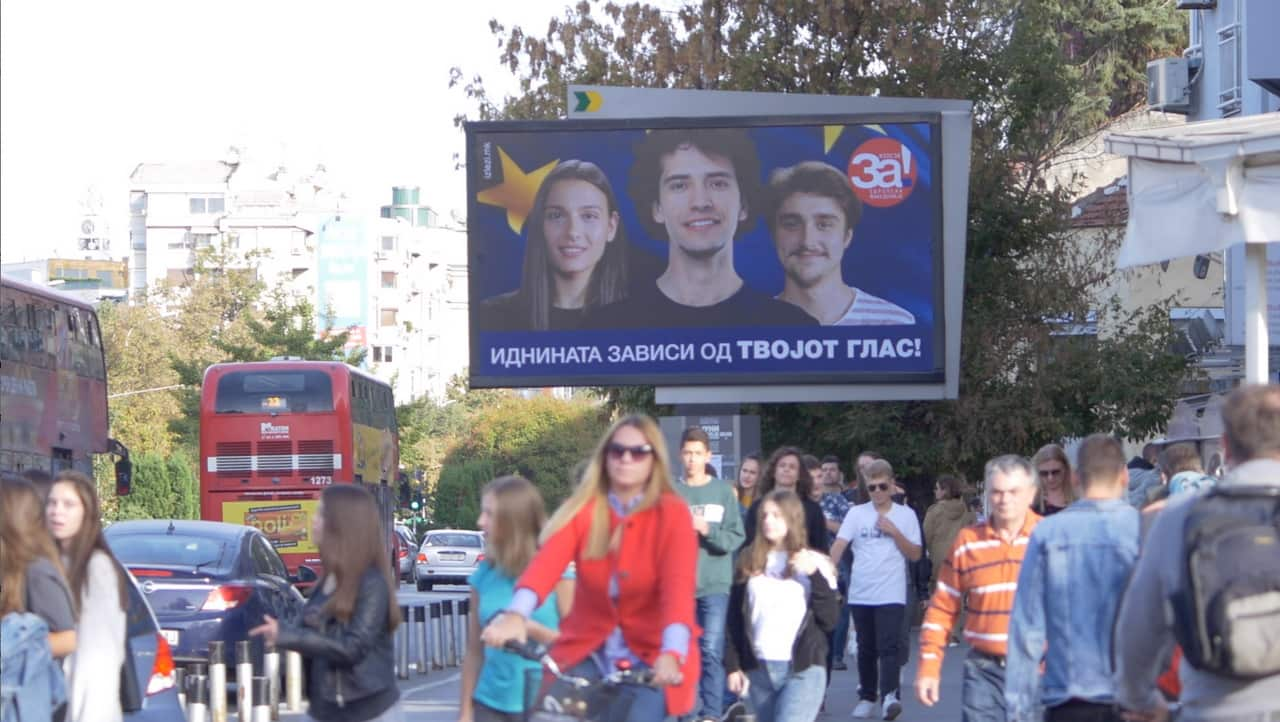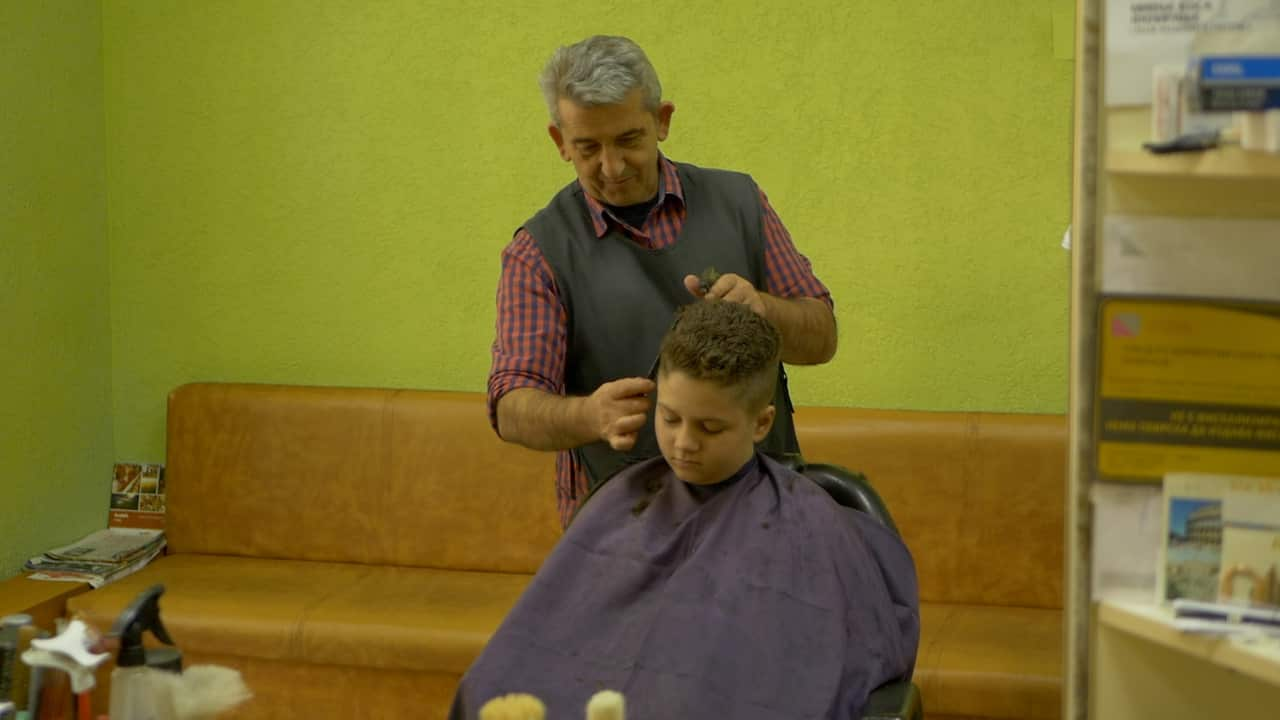What's in a name? For the people of the Former Yugoslav Republic of Macedonia, a great deal.
On Sunday, they will vote in a referendum to decide if the country should formally adopt the name Republic of North Macedonia.

For years, Greece has insisted Macedonia's name implied territorial claims to its own province of the same title. It blocked its northern neighbour’s bids for EU and NATO membership until June, when a deal was struck between Skopje and Athens.
Prime Minister Zoran Zaev is supporting the 'yes' campaign. He told a rally in the city of Strumica it was time for the stalemate between his country and Greece to be resolved.
"I know that many citizens are nauseated by the geographic qualifier in front of our national name," he said.
"But we all know that we achieved a fair and just agreement. We reached a compromise, one accepted by the world. Macedonia has been stuck long enough in the mud, 27 years."
The main opposition party, VMRO-DPMNE, disagrees.
Spokesperson Timco Mucunski told SBS News the deal gives Greece too much control over affairs north of the border and that European Union and NATO membership could be achieved without sacrificing sovereignty.
"Changing the constitutional name of this country would be contrary to the basic principles of self-determination, it shouldn’t be an issue between two countries," he said.

"Macedonia needs to continue integration with the European Union and NATO, but this includes bringing European values into the way we do politics, reforming our national political, economic and legal systems. These aren't problems that will be solved overnight if we accept a specific agreement or not.”
Signs of the referendum debate are everywhere in Skopje. Billboards showing young Macedonians line the streets, promoting ascension into the EU, while protestors holding signs showing a red line through a ballot box stand guard outside the parliament.
The Government’s fear is not that people will vote 'no', but that they won't vote at all. The referendum needs at least 50 per cent turnout for the result to be considered valid.
One man enjoying a Friday night dinner, who didn't wish to give his name, said he won’t be heading to the polls.
"The name is very important for our identity, for our culture, for everything I’ve learned in these 48 years I’ve lived, that’s why (I’ll support) the boycott," he told SBS.
Recent polls suggest supporters of the name change will be victorious, with many hoping the promise of EU membership will turn around the country’s economic woes. The average monthly net salary is one of the lowest in the region, while unemployment is above 20 per cent, one of the highest rates in the Balkans.

Remzi Osmani is a barber of Armenian descent, working in Skopje’s outskirts. He will be voting 'yes' with an eye on the future.
"First it will bring stability for us as a state, secondly, there will be foreign investments, decent ones," he said while cutting a boy’s hair.
"More jobs will created and we will be able to move much more freely than now."
A last-minute intervention by Macedonia’s President, Gjorge Ivanov, may swing some uncertain voters.
During his speech to the General Assembly at the United Nations this week, he likened the agreement with Greece to a "bitter fruit of a tree that had been poisoned a long time ago".
"We will be a state only by name, but not in substance, because others will regulate our way of life," he said.
The result should be known by Monday morning AEST.

